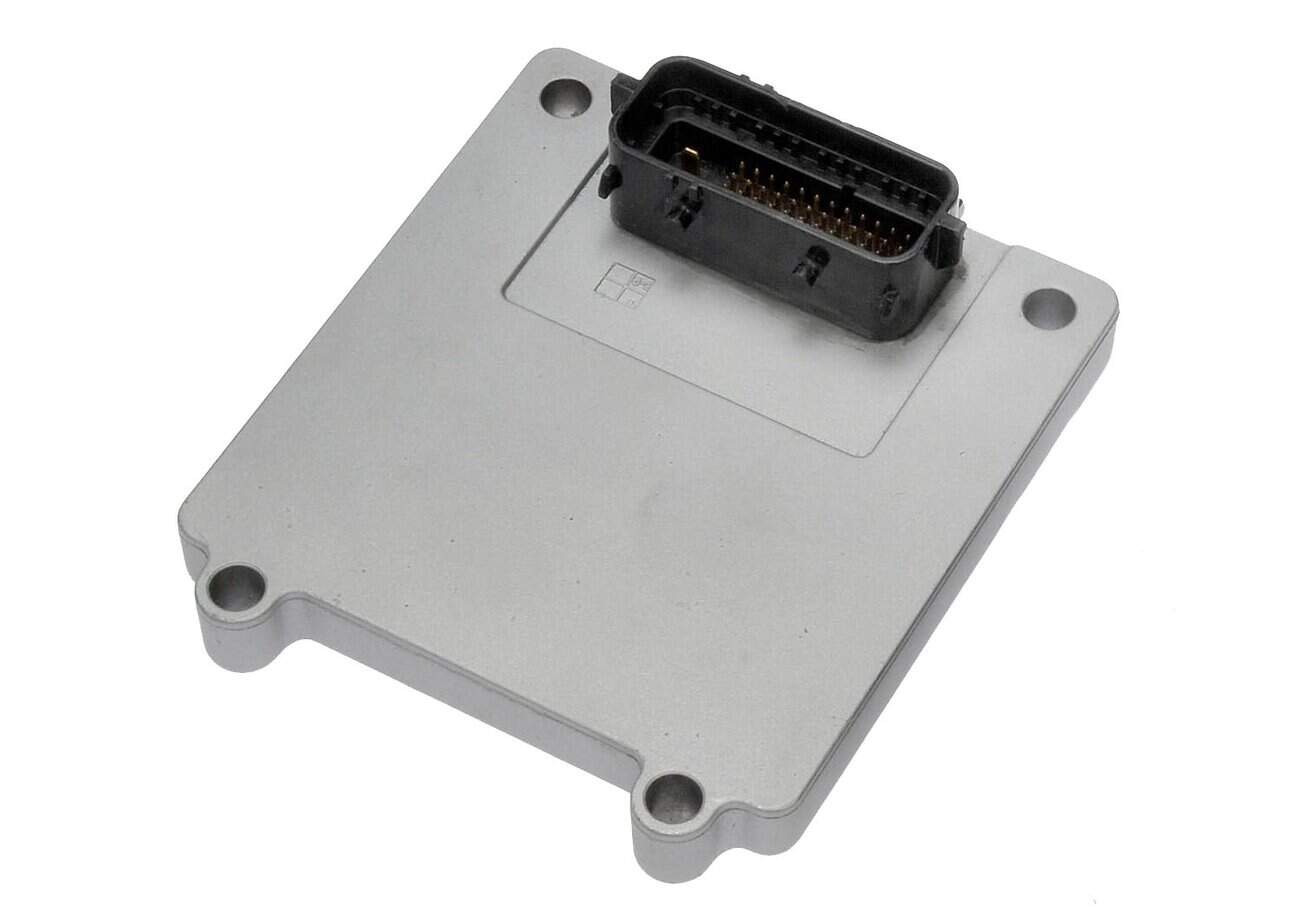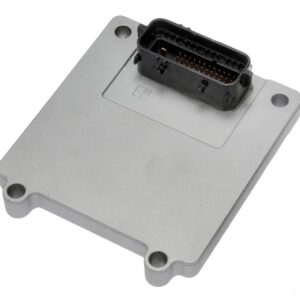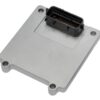If your 2006-2010 Chevrolet Cobalt is suffering from erratic shifting, getting stuck in gear, or has the check engine light on with transmission codes, you’ve likely diagnosed a failed Transmission Control Module (TCM). As an automotive technician with over two decades of experience, I’ve seen countless GM vehicles, especially compacts like the Cobalt, HHR, and G5, come into the shop with these exact issues. The T42 TCM is the brain of your automatic transmission, and when it fails, it can make your daily driver feel unreliable and unsafe.
This is a direct-replacement T42 Transmission Control Module, part number 24235732, that arrives at your door pre-programmed to your vehicle’s specific VIN. This means you can skip the expensive trip to the dealership for programming. It’s a true plug-and-play solution designed to restore the crisp, predictable shifting your car had from the factory. By managing shift points, torque converter clutch lockup, and line pressure, this module is the definitive fix for a host of transmission problems, getting you back on the road with confidence.
From the Diagnostic Bay
I remember a 2008 Cobalt that was brought to my shop, stuck in what the owner called “limp mode.” The car wouldn’t shift past 2nd gear, and the check engine light was glaring. A quick scan pulled a P0700 (Transmission Control System Malfunction) and a few solenoid circuit codes. While the codes pointed towards the solenoids, my experience with these platforms told me to check the source first. The TCM is exposed to constant heat and vibration, which often leads to internal circuit failure. We installed a VIN-programmed TCM, cleared the codes, and the car shifted perfectly on the test drive. The customer saved hundreds by avoiding a dealership diagnosis and programming fee.
Is Your Cobalt Exhibiting These TCM Failure Signs?
A faulty TCM can manifest in several ways. If you’re experiencing any of the following, it’s a strong indicator that your module needs replacement. This is especially true if you have a 2006-2010 Cobalt TCM showing its age.
- ✔ Harsh, banging shifts or delayed gear engagement.
- ✔ Vehicle is stuck in one gear (limp mode), often 2nd or 3rd.
- ✔ Check Engine Light or Transmission Warning Light is illuminated.
- ✔ Diagnostic Trouble Codes (DTCs) like P0700, P0750, P0753, P0758 are present.
- ✔ Inconsistent or no shifting, leading to poor acceleration and fuel economy.
- ✔ Complete loss of communication with the TCM, preventing diagnostics.
Your 30-Minute Path to Smooth Shifting
One of the best features of this module is its straightforward installation. For a Chevy Cobalt, the process is simple enough for a DIY enthusiast to complete in their driveway in under 30 minutes.
- Safety First: Disconnect the negative terminal from your vehicle’s battery to prevent any electrical shorts and to help reset the vehicle’s computer systems.
- Locate the Module: On the 2006-2010 Cobalt, the TCM is typically located on the driver’s side of the engine bay, mounted to the LH strut tower. It’s a silver box with electrical connectors.
- Disconnect and Remove: Carefully unplug the electrical harnesses from the old TCM. Then, unbolt the module from its mounting bracket.
- Install the New TCM: Mount your new, VIN-programmed module in place of the old one and securely reconnect the wiring harnesses. Ensure they click into place.
- Final Steps: Reconnect the battery terminal. Start the vehicle and let it idle for a few minutes. While not always necessary, using a basic OBD2 scan tool to clear any stored fault codes is a good final step.
Verified Fitment Across the GM Family
While this is the correct part for a 2006-2010 Cobalt TCM replacement, this versatile T42 module also fits a wide array of other General Motors vehicles. Please verify your model and year below. This part is interchangeable with service numbers 24242391, 24234503, 24252114, and others.
- Chevrolet: Cobalt (06-10), HHR (06-11), Impala (06-11), Malibu (06-10), Monte Carlo (06-07), Silverado, Tahoe, Express Van, and more.
- Pontiac: G5 (07-10), G6 (06-10), Grand Prix (06-08), Pursuit (06).
- Saturn: Aura (07-09), Ion (06-07), Vue (07-10).
- Buick: Allure (06-09), LaCrosse (06-09), Lucerne (06-11).
- GMC: Canyon, Envoy, Sierra, Yukon, Savana Van.
- And others including: Cadillac DTS, Hummer H3, and Saab 9-7X.
What does ‘VIN Programmed’ mean for me?
What does ‘VIN Programmed’ mean for me?
It means we flash the module with your vehicle’s 17-digit Vehicle Identification Number (VIN) and the latest GM software before we ship it. This ensures it communicates perfectly with your car’s other computers (like the ECM and BCM) right out of the box, eliminating the need for expensive dealership programming.
Is there a core charge for my old TCM?
No, there is absolutely no core charge. You are not required to send your old, faulty module back to us. You can keep it or dispose of it at your convenience.
Will this fix a P0700 code on my Cobalt?
A P0700 code is a general fault code indicating the TCM has detected a problem. Often, the root cause is the TCM itself. While you should investigate any other specific codes (like for solenoids), replacing a faulty TCM is a very common and effective fix for a persistent P0700 code.
What if I don’t replace a failing TCM?
Continuing to drive with a bad TCM can cause more than just poor performance. Harsh shifting can cause premature wear and damage to internal transmission components like clutches and bands, potentially leading to a much more expensive transmission rebuild down the line.


